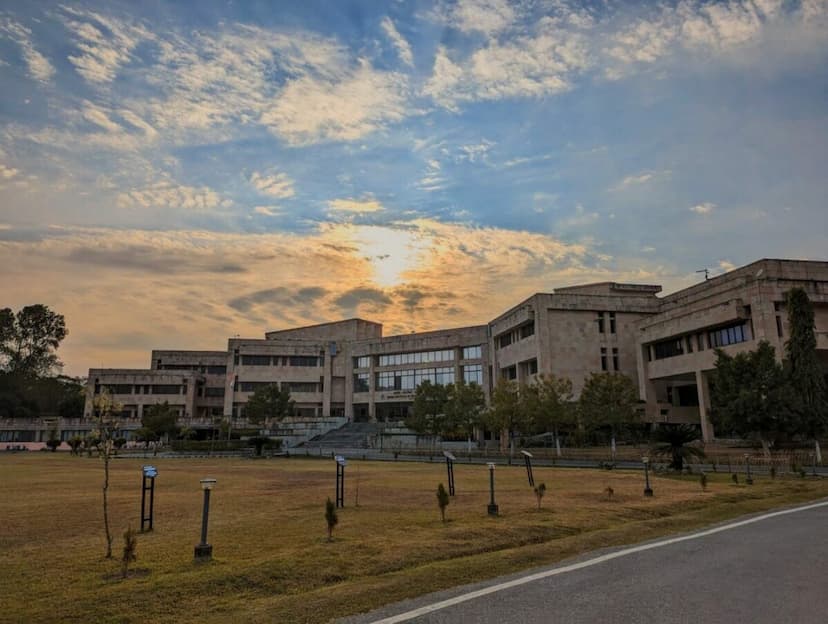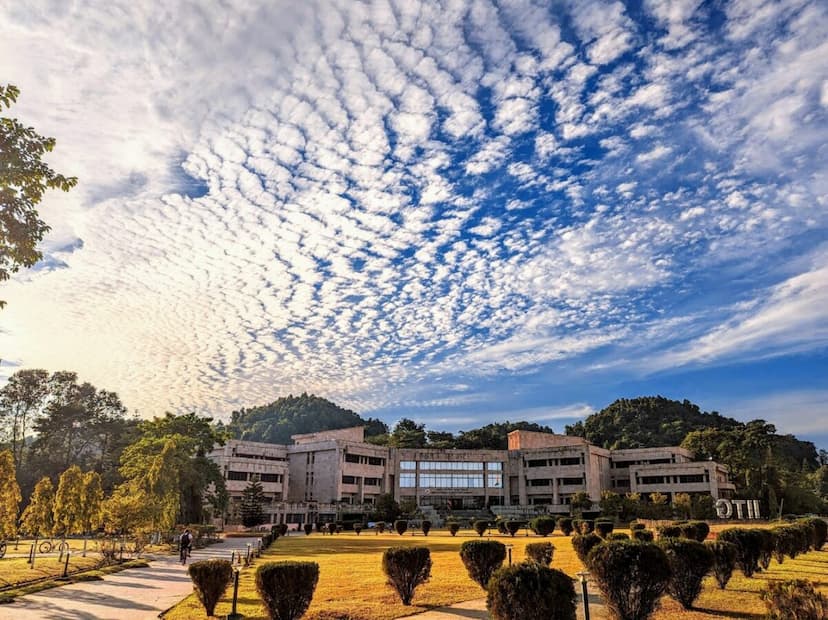IIT Guwahati develops great innovative technology

IIT Guwahati researchers have developed an advanced biological method to convert methane and carbon dioxide into cleaner biofuels using methanotrophic bacteria.
This innovative approach represents a significant leap toward sustainable energy solutions and climate change mitigation.


The study addresses two pressing global challenges: the harmful environmental impact of greenhouse gases and the depletion of fossil fuel reserves.
Methane
Methane, a greenhouse gas that is 27-30 times more potent than carbon dioxide, is a significant contributor to global warming.
While turning methane and carbon dioxide into liquid fuels can reduce emissions and provide renewable energy, existing chemical methods are energy-intensive, expensive, and produce toxic by-products, limiting their scalability, say sources from IIT Guwahati.

Process
IIT Guwahati team has developed a fully biological process that uses Methylosinus trichosporium, a type of methanotrophic bacteria, to convert methane and carbon dioxide into bio-methanol under mild operating conditions.
Unlike traditional chemical methods, this process eliminates the need for expensive catalysts, avoids toxic by-products, and operates in a more energy-efficient manner, say IIT Guwahati researchers.


Capturing methane to generate bacteria-based biomass. Utilising the biomass to convert carbon dioxide into methanol.
The team further optimised the process using advanced engineering techniques to improve gas solubility, significantly enhancing methanol yields, say sources from IIT Guwahati.
The bio-methanol produced was blended with diesel (5-20% ratios) and tested in a four-stroke diesel engine. Key results include:
Emission Reductions: Up to 87% reduction in carbon monoxide, hydrocarbons, hydrogen sulphide, and smoke emissions.

Improved Efficiency: Diesel-methanol blends outperformed pure diesel in fuel consumption, energy efficiency, and engine performance, while maintaining similar mechanical efficiency.
About the research
Prof. Debasish Das, Dept. of Biosciences and Bioengineering, IIT Guwahati spoke about the research.
This research is a breakthrough as it demonstrates that bio-methanol, derived from bacteria feeding on methane and carbon dioxide, can be a viable alternative to fossil fuels, said Prof Debashish of IIT Guwahati.
Unlike conventional biofuels that rely on crops and create competition with food production, our method uses greenhouse gases, avoiding the ‘food vs. fuel’ issue. It is an environmentally and economically viable solution, utilising inexpensive resources while contributing to emissions reduction, he said.
Conversion
The biological conversion of methane and carbon dioxide into bio-methanol not only provides a cleaner fuel alternative but also has industrial applications as a precursor for producing chemicals like formaldehyde and acetic acid, say sources from IIT Guwahati.
This process offers immense potential to decarbonise critical industries, including oil and gas, refineries, and chemical manufacturing, paving the way for a more sustainable future.
Sustainability
This innovation aligns with global sustainability goals, showcasing IIT Guwahati’s commitment to fostering research that addresses critical environmental challenges while advancing clean energy solutions.
With the potential to reduce reliance on fossil fuels and minimise greenhouse gas emissions, this advancement represents a significant stride toward a cleaner and greener future.

They are covering all the major engineering, science, healthcare, management, and humanities disciplines, offering BTech, BDes, BSc(Hons), MA, MDes, MTech, MSc, MS(R), MBA and PhD programmes.
The institute offers a residential campus to 455 faculty members and more than 8,600 students at present. IIT Guwahati has retained the 7th position among the best engineering institutions of the country, 9th position in ‘Overall’ and 10th position in ‘Research’ Categories in the ‘India Rankings 2024’ declared by the National Institutional Ranking Framework (NIRF) of the Union Ministry of Education.
Also Read – IIT Madras and Thales unveil great top 6 teams
S Vishnu Sharmaa now works with collegechalo.com in the news team. His work involves writing articles related to the education sector in India with a keen focus on higher education issues. Journalism has always been a passion for him. He has more than 10 years of enriching experience with various media organizations like Eenadu, Webdunia, News Today, Infodea. He also has a strong interest in writing about defence and railway related issues.









